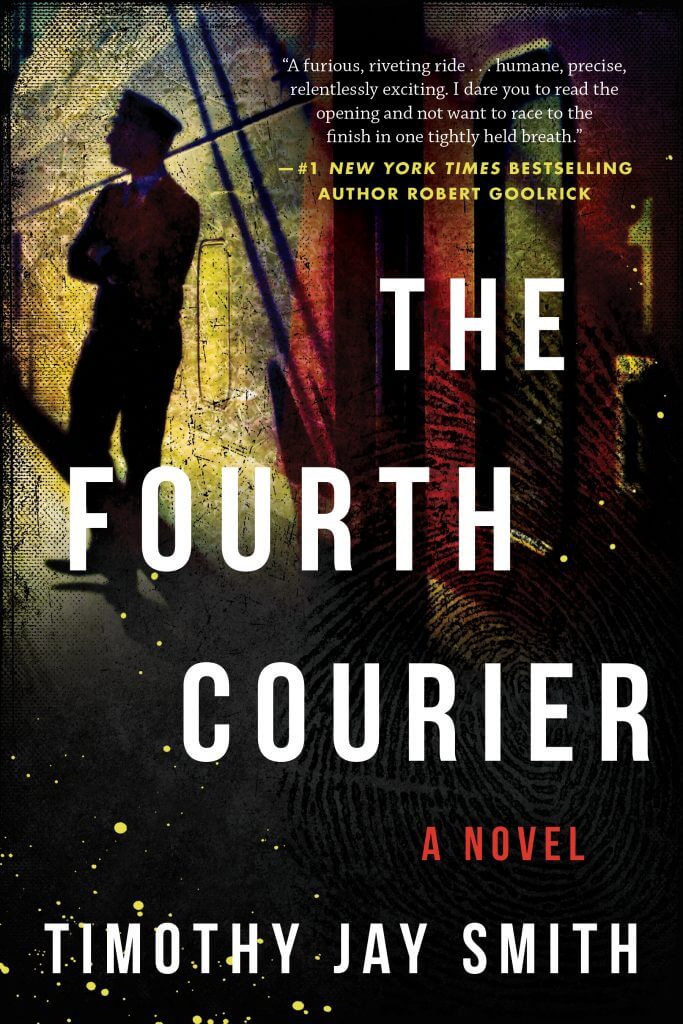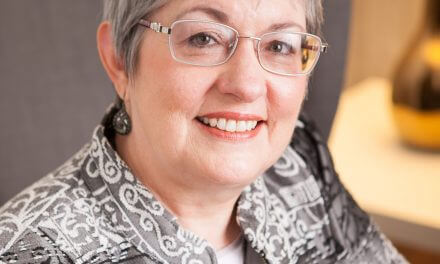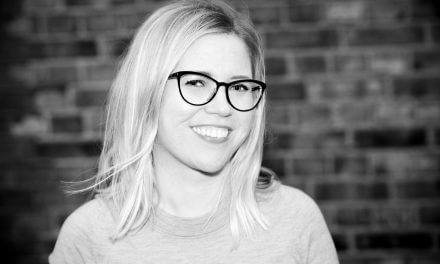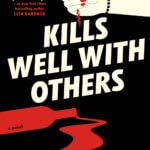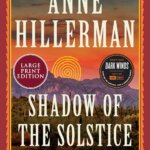You have a new novel coming out, The Fourth Courier, set in Poland. What’s it about?
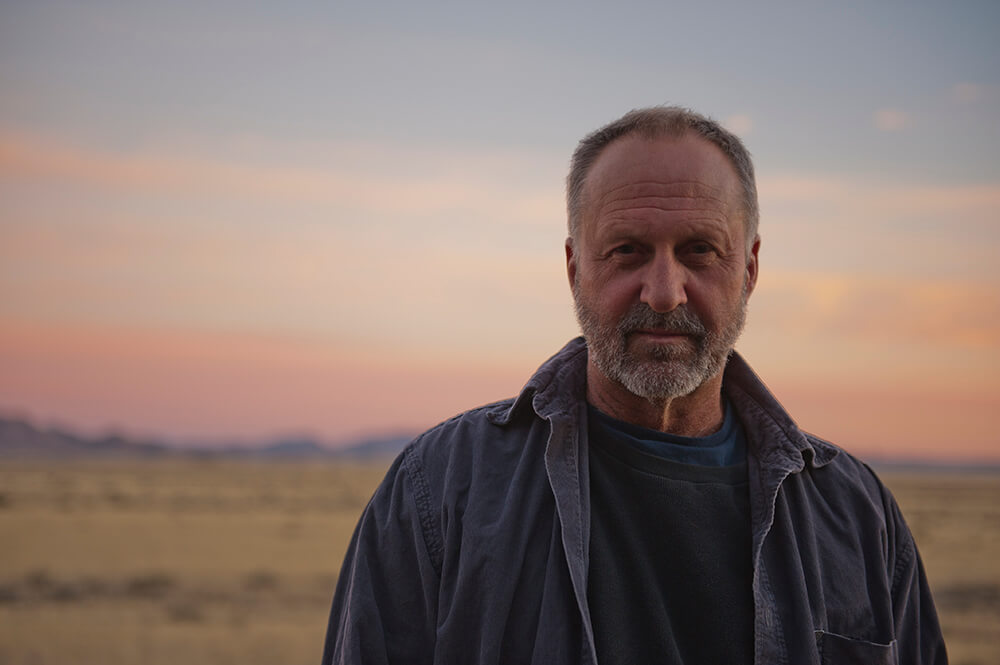
The Fourth Courier opens in the spring of 1992, only four months after the collapse of the Soviet Union. A series of grisly murders in Warsaw suddenly becomes an international concern when radiation is detected on the third victim’s hands, raising fears that all the victims might have smuggled nuclear material out of Russia.
Poland’s new Solidarity government asks for help and the FBI sends Special Agent Jay Porter to assist in the investigation. He teams up with a gay CIA agent. When they learn that a Russian physicist who designed a portable atomic bomb is missing, the race is on to find him and the bomb before it ends up in the wrong hands.
My novels have been called literary thrillers because I use an event or threat—a thriller plot—to examine what the situation means to ordinary people. In The Fourth Courier, Jay becomes intimately involved with a Polish family, giving the reader a chance to see how the Poles coped with their collective hangover from the communist era.
How did you come up with the story for The Fourth Courier?
The Fourth Courier book goes back a long way for me. In 1989, the Berlin Wall fell, and Solidarity won the first free election in Poland in over sixty years. In the same year, Mikhail Gorbachev introduced new cooperative laws in the Soviet Union, which was an area of my expertise. I was invited to the Soviet Union as a consultant, which led to my consulting throughout the former Soviet bloc, eventually living for over two years in Poland.
At the time, there was a lot of smuggling across the border between Russia and Poland, giving rise to fears that nuclear material, too, might be slipping across. While on assignment in Latvia, I met with a very unhappy decommissioned Soviet general, who completely misunderstood my purpose for being there. When an official meeting concluded, he suggested we go for a walk where we could talk without being overheard.
I followed him deep into a forest. I couldn’t imagine what he wanted. Finally we stopped, and he said, “I can get you anything you want.” I must have looked puzzled because he added, “Atomic.”
Then I understood. In an earlier conversation, there had been some passing remarks about the Soviets’ nuclear arsenal in Latvia, for which he had had some responsibility, and apparently still some access. While my real purpose for being there was to design a volunteer program for business specialists, he assumed that was a front and I was really a spy. Or perhaps he thought I really did want to buy an atomic bomb!
Have you always been a writer?
In the sense of enjoying to write, yes. I actually wrote my first stage play in fourth grade and started a novel in sixth grade, but I didn’t become a full-time fiction writer until twenty years ago. The first half of my adult life I spent working on projects to help low income people all over the world. I always enjoyed the writing aspects of my work—reports, proposals, even two credit manuals—but I reached a point where I’d accomplished my career goals, I was only forty-six years old, and I had a story I wanted to tell.
What was the story?
For over two years, I managed the U.S. Government’s first significant project to assist Palestinians following the 1993 Oslo Accords. One thing I learned was that everyone needed to be at the negotiating table to achieve an enduring peace. So I wrote a story of reconciliation—A Vision of Angels—that weaves together the lives of four characters and their families.
If anybody had ever hoped that a book might change the world, I did. Unfortunately I didn’t manage to bring about peace in the Middle East, but I’ve continued writing nevertheless.
The Fourth Courier has a strong sense of place. It’s obvious that you know Warsaw well. Other than living there, what special research did you do?
Warsaw is a city with a very distinctive character. It’s always atmospheric, verging on gloomy in winter, and the perfect location for a noir-ish thriller.
I had left Warsaw several years before I decided to write a novel set there, so I went back to refresh my memory. I looked at it entirely differently. What worked dramatically? Where would I set scenes in my story?
It was on that research trip when all the events along the Vistula River came together for me. There was a houseboat. There was Billy’s shack, and Billy himself whose “jaundiced features appeared pinched from a rotting apple.” There were sandbars reached by narrow concrete jetties and a derelict white building with a sign simply saying Nightclub. Fortunately, Billy’s dogs were tethered, or I wouldn’t be here to answer your questions.
My main character is an FBI agent, and I didn’t know much about it. A friend, who was an assistant to Attorney General Janet Reno, arranged a private tour of the FBI’s training facility in Quantico. That was before 9/11. I don’t think that could be done now. Maybe for James Bond himself but not for a wannabe writer.
If I was going to write a novel about smuggling a portable atomic bomb, I needed to know what a bomb entailed. Weight, seize, basic design, fuel? How would a miniature bomb be detonated? So I blindly contacted the Department of Energy. I explained what I wanted and was soon connected to an atomic expert who agreed to meet with me.
We met on the weekend at a Starbucks-like coffee shop in Rockville, MD. We met in line and were already talking about atomic bombs before we ordered our coffees. He had brought basic drawings of them. He was an expert and eager to share his knowledge.
Can you imagine having that conversation in a café today, openly looking at how-to schematics for building an atomic bomb while sipping skinny lattés?
You’ve mentioned ‘scenes’ a couple of times. I know you also write screenplays. Do you find it difficult to go between the different formats or styles?
The sense of scene is crucial to my writing. It’s how I think about a story. Before I start a new work, I always have the opening and closing scenes in my head, and then I ask myself what scenes do I need to get from start to finish.
I think it comes from growing up in a house where the television was never turned off. My sisters and I were even allowed to watch TV while doing homework if we kept our grades up. Sometimes I joke that canned laughter was the soundtrack of my childhood. I haven’t owned a television for many years but growing up with it exposed me to telling stories in scenes, and it’s why my readers often say they can see my stories as they read them.
For me, it’s not difficult to go between prose and screenplays. In fact, I use the process of adapting a novel to a screenplay as an editing tool for the novel. It helps me sharpen the dialogue and tighten the story.
In your bio, you mention traveling the world to find your characters and stories, and doing things like smuggling out plays from behind the Iron Curtain. Was it all as exciting as it sounds?
It was only one play, and yes, I confess to having an exciting life. I’ve done some crazy things, too, and occasionally managed to put myself in dangerous situations. Frankly, when I recall some of the things I’ve done, I scare myself! By comparison, smuggling a play out of Czechoslovakia in 1974 seems tame. But I’ve always had a travel bug and wanted to go almost everywhere, so I took some chances, often traveled alone, and went to places where I could have been made to disappear without a trace.
It sounds like you have a whole library full of books you could write. How do you decide what story to tell and who will be your characters?
I came of age in the 1960s during the Civil Rights Movement and the anti-Vietnam War demonstrations, so I developed a strong sense of social justice. That guided my career choice more than anything, and when I quit working to write full-time, it was natural that I wanted my books to reflect my concerns. Not in a “big message” way, but more in terms of raising awareness about things that concern me.
For example, take Cooper’s Promise, my novel about a gay deserter from the war in Iraq who ends up adrift in a fictional African country. It was 2003, and in a few days, I was headed to Antwerp to research blood diamonds for a new novel. I was running errands when NPR’s Neal Conan (Talk of the Nation) came on the radio with an interview of National Geographic photographer Jodi Cobb about a project on modern-day slavery. It was the first time I heard details about human trafficking, and was so shocked by its enormity that I pulled my car off the road to listen.
I decided on the spot that I needed to find a story that touched on both blood diamonds and trafficking. When I went to Antwerp a few days later, I visited the Diamond District as planned, but also visited a safe house for women who had been rescued from traffickers.
In The Fourth Courier, you team up a white straight FBI agent with a black gay CIA agent. Even Publishers Weekly commented that it seemed like an ideal set-up for a sequel. Do you plan to write one?
Probably not. My to-be-written list is already too long.
I’m close to finishing the final edits on a book set in Greek island village, which is more of a mystery about an arsonist than a thriller. I’ve already started a new novel set in Istanbul about a young refugee who’s recruited by the CIA to go deep undercover with ISIS. I’ve never written a novel set in the States, but I have the idea for one.
To date, my books have been stand-alones with totally different settings, characters, and plots. I try to write what I like to read: smart mysteries/thrillers with strong plots and colorful characters set in interesting places. I suppose like me, I want my stories to travel around and meet new people.
You’ve had gay protagonists or important characters since your first novel over twenty years ago when gay literature had not yet become mainstream. How would you say that affected your choices as a writer, or did it?
Friends warned me that I shouldn’t become known as a gay writer because it would pigeonhole me and sideline me from consideration as a serious writer. At the time, I think the general public thought gay books were all about sex and more sex. Of course, already there were many emerging gay literary writers; it was more stigma than reality.
The world of thrillers and mysteries is still largely uninhabited by gays. Hopefully I am helping to change that. I also hope that my novels expand my readers’ understanding of homosexuality in the places where I set them. In The Fourth Courier, the gay angle is key to solving the case. In my other novels, too, the plot turns on something gay, and the way it does is always something that couldn’t have happened in the same way anywhere else because of the cultural context.
What do you want your readers to take away from The Fourth Courier?
What motivated me to write The Fourth Courier was a desire to portray what happened to ordinary Polish people at an exciting albeit unsettling moment in their country’s history. I hope my readers like my characters as much as I do—at least the good guys. The people are what made Poland such a great experience.
The Fourth Courier is my thank-you note to them.
********************
The Fourth Courier is available through:
